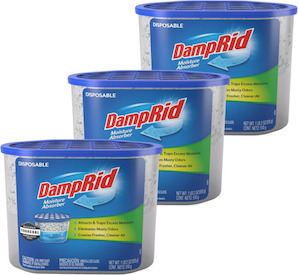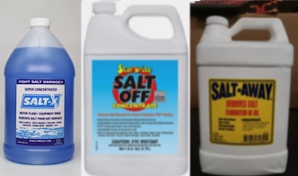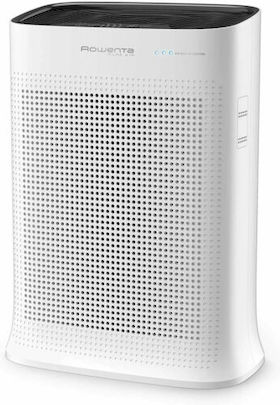
-----
Salt air corrosion of TV, computers, etc.
Q. I have a house on the sea front and all my household assets are corroding due to the salt air. Will de-humidifiers help me with the humid and salt air. An example of the assets corroding are:- TV, SOUND SYSTEM, COMPUTER, etc. Air conditioner compressors and additional parts as well are affected. Please advise the best way to either stop or at least slow down the corrosion.
Regards,
Stuart Anderson- Accra, Greater Accra, Ghana
2004
A. Hi, Stuart,
On a theoretical level, yes, reducing the humidity will reduce the corrosion rate. But if you already are operating air conditioners, you are already employing the same principle that dehumidifiers work on; so the improvement from installing dehumidifiers will be a matter of a small degree rather than a sea change. Whereas if you leave the windows open, a dehumidifier can't dehumidify the whole world.
But it probably would be worthwhile investing in some cans of desiccant for placement adjacent to critical components, plus the installation of a dehumidifier with piped drainage for the house.
Good luck, regards,

Ted Mooney, P.E.
Striving to live Aloha
finishing.com - Pine Beach, New Jersey
Ted can be retained for immediate
answers or long term project help
A. As far as the assets inside the home I don't have a solution. The asset outside, being the a.c. unit, I have personally used a product called Air Conditioner Salt Remover, purchased at a local Ace hardware store. I believe the company also sells on-line. Has been working extremely well for me, several years and no signs of corrosion. Best of luck with the inside.
Charles Stanley- Panama City Beach, Florida
January 14, 2011
Hydrogen sulfide corrosion of TV
Q. Hello, we have some serious problems with our TVs, and ACs. We live on the beach and the sargasso (hydrogen sulfide) is corroding these appliances and we have to replace them frequently. We rent the apartments out and tenants don't understand the importance of "protecting" their (our) TVs. We are obligated to supply a TV in these particular units. We have been informed by tv repairmen that we could place towels over the tv when not in use. We've been told to wrap in Saran Wrap when the room not occupied. We've been told to keep the TV on and run the AC, TV etc at least once a week. We implore the tenants not to leave their doors open 24/7 and to run the ceiling fan as much as possible to keep the air flowing in the room. (Studio apartment). We have salt remover for the ACs but what do you suggest for the TVs? Especially need guidance on maintenance and tips on slowing down the corrosion, especially from the hydrogen sulfide. Once the corrosion starts, is there any preventative measure we can use to stop corrosion once it has started? In 3 years, we have lost 3 ACs, 3 TVs, 2 microwaves and 2 safes. How can running a TV when the units are not in use help? Thank you so much for your attention and hopefully some guidance.
Frustrated
Exall properties - San Pedro, ambergris Caye, BELIZE
May 28, 2019
A. Hi Misty. I believe I could totally solve this problem for you within 8 days (7 nights) and at no cost. But to offer the best test case I'd need a room with a working TV & air conditioner -- preferably beachfront to offer the best test case to experiment with. And just in case it might have something to do with the corrosion, a jacuzzi would be nice too :-)
There are activated carbon air purifiers which will remove those contaminants and help solve the problem ⇨
Activated carbon filters are available for furnaces & central air conditioning; and custom material is available to trim for window or wall air conditioners, which would offer at least something. You could also buy activated carbon filter cloth ⇦ on Amazon [affil link] to sew into 'pillow cases' to drop over the TVs, microwaves, etc., when not in use.
Regards,

Ted Mooney, P.E. RET
Striving to live Aloha
finishing.com - Pine Beach, New Jersey
Ted can be retained for immediate
answers or long term project help
Q, A, or Comment on THIS thread -or- Start a NEW Thread


